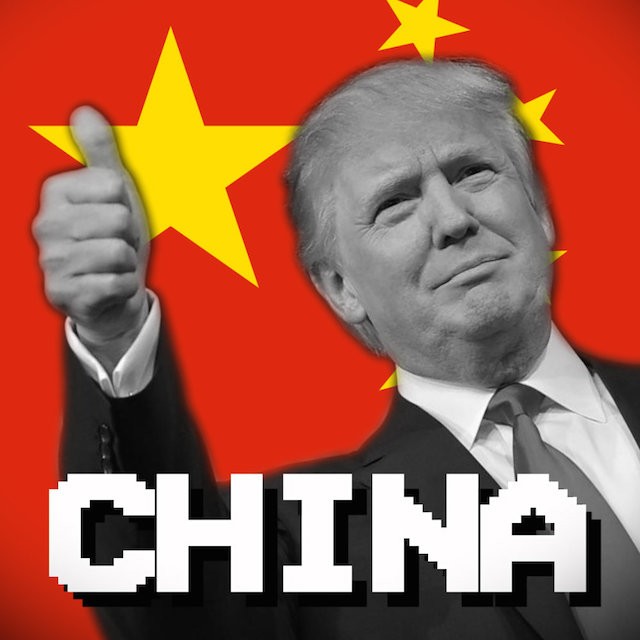(单词翻译:单击)
According to a 2013 report by the American Economic Review, one million American factory jobs have been lost to China.
根据 2013 年《美国经济评论 》的报告,有一百万份美国制造业职缺已移转至中国。
So what could Donald Trump actually do about this if elected?
如果川普就算选上了又如何解决这样的问题呢?
We'll, he's suggested this: a 45% tariff on Chinese goods. Which he cannot do.
他建议这样做:针对中国货品征 45% 的关税。但他无法这么做。
You can't impose tariffs on entire countries.
你不能对整个国家加重关税。
What you can do under existing laws is to set out specific categories of imports you want to put a tariff on, like the US did to Chinese tires in 2009.
在现行法规下你所能做的是对特定的进口货品分门别类,然后对其加重关税,就像美国 2009 年时对付中国轮胎那样。
The result? Tires just got imported from Indonesia, Mexico, and Thailand.
结果呢?轮胎改从印尼、墨西哥还有泰国进口。
And no, there were not suddenly more US jobs manufacturing tires.
结果美国还是没有增加轮胎制造业的工作职缺。
But it's not easy to place these tariffs because you'd have to prove specific violations of trade rules to the World Trade Organization.
但要加征这些关税并不容易,因为你必须要向世界贸易组织证明有明确违背贸易协定才可执行。
They're the ones that regulate global commerce.
他们就是管制全球商业活动的组织。

You see, when the WTO was set up in 1995, the rules laid out didn't really take into consideration dealing with China
要知道,当 WTO 在 1995 年创立之初,其规定并未考量到该如何规范像中国这样的共产国家,
a country where the Communist Party has pretty murky ties to just about everything, including the handling of the economy.
特别是共产党含混的深入中国所有大小事,包含对经济的管理等。
It's not really communism, but the government is way more involved than in most countries.
它不是完全的共产主义,但是政府却比其他国家都要更加介入。
If a president Trump decided to say "screw it" and did impose a broad China tariff, well, that would kind of mean global trade laws no longer matter.
如果川普总统最后决定说“管他的”,然后真的对中国广泛课征关税,那就有点意味着全球贸易法规都不再重要了。
And that goes against US policy going as far back as the end of World War II.
而这有违自二次世界大战以来的美国国家政策。


